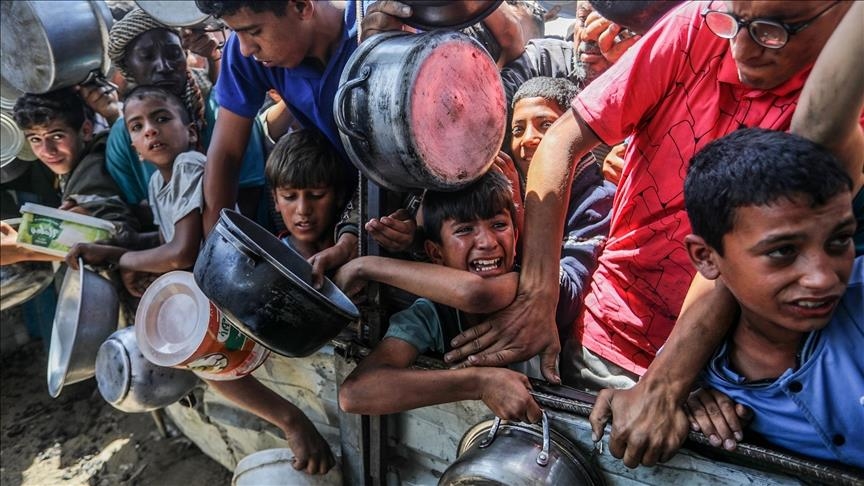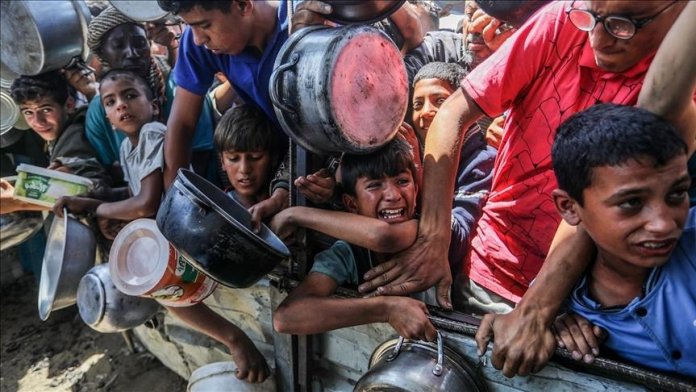Prime Minister Robert Abela joined foreign ministers from 24 other countries on Tuesday evening in calling for unrestricted humanitarian aid access to Gaza, as the territory faces what officials describe as “unimaginable levels” of suffering.
“Malta is among a number of countries whose governments are appealing for much-needed humanitarian aid to be allowed into Gaza and for it to arrive unhindered,” Abela wrote on Facebook.
“Faced with a precarious situation where people are dying of hunger and thirst, we have never been and even less can we remain silent.”
The joint statement from 25 nations, including Malta’s foreign minister Ian Borg alongside the UK, Australia, France, Spain and Japan, declared that “famine is unfolding before our eyes” and demanded Israel allow what they termed a “flood of aid” into Gaza through all crossings and routes.
“We call on the government of Israel to provide authorisation for all international NGO aid shipments and to unblock essential humanitarian actors from operating. Immediate, permanent and concrete steps must be taken to facilitate safe, large-scale access for the UN, international NGOs and humanitarian partners. All crossings and routes must be used to allow a flood of aid into Gaza, including food, nutrition supplies, shelter, fuel, clean water, medicine and medical equipment. Lethal force must not be used at distribution sites, and civilians, humanitarians and medical workers must be protected,” the ministers wrote.
However, critics argue these humanitarian appeals serve as a dangerous distraction from more fundamental policy failures. Focusing on aid enables the international community to manage a humanitarian catastrophe whilst ignoring what they describe as deliberate ethnic cleansing policies designed to make Palestinian life uninhabitable.
The stark reality on the ground supports concerns about the effectiveness of aid-focused approaches. According to UN reports, Gaza requires 62,000 metric tonnes of food aid monthly to meet basic needs, yet only 14,000 metric tonnes were delivered in July. Some 6,000 trucks loaded with aid remain stranded, awaiting permission to enter.
Even when aid does enter Gaza, distribution has become increasingly perilous. UN data shows that 88% of aid trucks entering between mid-May and early August failed to reach their destinations due to interception by desperate crowds or armed groups engaged by Israel. The collapse of law and order has created a humanitarian nightmare that critics say serves Israel’s broader strategic objectives.
The situation has been exacerbated by the replacement of UNRWA’s 400 distribution points with just four centralised Gaza Humanitarian Foundation sites. These locations, described by the UN as “death traps,” have become scenes of mass casualties, with at least 1,000 people killed around GHF sites since May. Many victims suffered gunshot wounds from drones, tanks, and helicopters targeting aid seekers.
Critics argue that while the international community issue empty statements expressing concern, they simultaneously provide Israel with the military equipment enabling these policies. The contradiction between humanitarian appeals and continued arms supplies, they contend, demonstrates the fundamental inadequacy of symbolic gestures.
The joint statement’s signatories notably avoided addressing the weapons flows and impunity that critics say make Gaza’s suffering possible. Instead, they focused on managing humanitarian consequences whilst leaving the underlying power structures intact.


